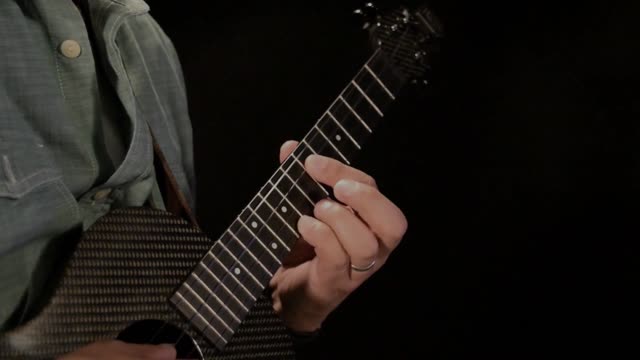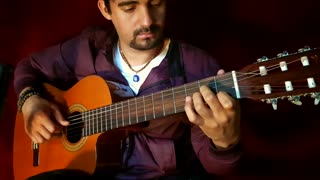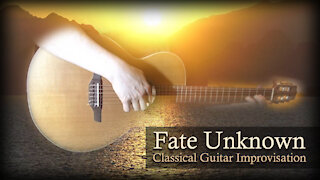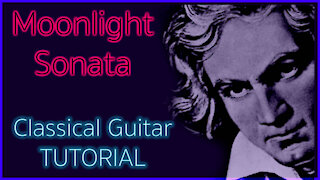Premium Only Content

Truman Sleeps by Philip Glass Arranged for Classical Guitar and Ukulele
In providing the music for the film The Truman Show, composer Philip Glass participated in what might well be seen as an emblem of postmodernism at its most self-conscious. While the movie examines the appetite of the television generation for a kind of voyeuristic, artificial reality (realized through the televised life of a man who, unbeknownst to him, lives in a fabricated, made-for-TV world), Glass likewise cleverly sends up the tendency for the austere and serious surface of much of his own music (and perhaps the deliberative attitude of minimalist music in general) to convey to its listeners a sense of gravity and seriousness that is perhaps also sometimes contrived. Present are the hallmarks of Glass' mature style, including large architectonic blocks of static harmony propelled forward by undulating arpeggiations, driving cross-rhythms, and streamlined but lyrical melodies. Such sounds had, in fact, become a de facto soundtrack to modern life by the mid-'90s. As Edward Strickland observed in 1993, "Minor-mode repetition is now to cinematic suspense what tone clusters and fortissimo dissonance had been to horror and madness for decades, with the falling/rising minor thirds of Glass in particular having been proven a gold mine for Hollywood." Aware of this mass appropriation of his style, Glass cleverly makes this the subject of his soundtrack for The Truman Show. At the dramatic climax of the movie, when the title character is about to escape from his artificial world, the camera rapidly cuts between Truman making a run for it, the director and crew making Truman's plight television-worthy in real-time, and the faces of the viewing audience glued to their screens. At this point, the audience (that is, the one we are a part of in the real world) is drawn into Truman's "authentic" plight by Glass' motorically rhapsodic score. As it turns out, though, the joke is one us: we're not hearing the score to the movie we're watching, but the score to the fake television show within the movie. To point up the conflation of the real and the artificial, the camera briefly cuts to the control room where, on cue from the director, a musician positioned at a bank of keyboards swells the music to heighten the drama -- for us and for Truman's TV audience alike. The point is driven home even more poignantly for those viewers who recognize the musician in the control room executing the melodramatic minor-mode arpeggiations: it's Philip Glass himself in a cameo appearance.
-
 4:34
4:34
Jam Sessions
3 years ago $0.03 earnedClassical Guitar Tutorial
592 -
 3:27
3:27
Gugard
3 years agoBella Ciao on Classical Guitar
44 -
 5:01
5:01
Jam Sessions
3 years ago $0.01 earned464 Classical Guitar Tutorial
65 -
 4:14
4:14
sketchandjam
3 years ago $0.01 earnedFate Unknown - Classical Guitar Improvisation
25 -
 2:26
2:26
edinabalczo
3 years agoMalaguena Classical Guitar Cover
1082 -
 5:01
5:01
Jam Sessions
3 years ago464 BBB Classical Guitar Tutorial
34 -
 2:13
2:13
Redearthmusic
4 years agoTruman Sleeps
37 -
 19:37
19:37
Stacy Arnold
3 years ago $0.01 earnedStacy Arnold performs a live-stream classical guitar concert
1381 -
 9:33
9:33
CrumblyCake
3 years agoComposing for Classical Guitar Daily Tips: Common Tones
20 -
 11:41
11:41
CrumblyCake
3 years agoComposing for Classical Guitar Daily Tips: Scale Management
14